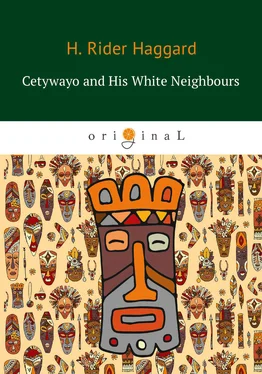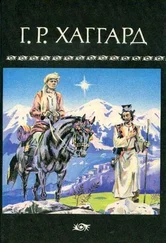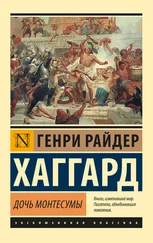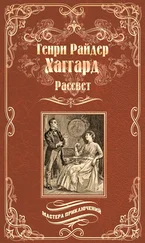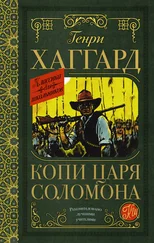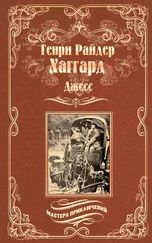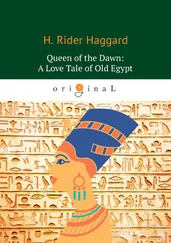Генри Райдер Хаггард - Cetywayo and His White Neighbours
Здесь есть возможность читать онлайн «Генри Райдер Хаггард - Cetywayo and His White Neighbours» — ознакомительный отрывок электронной книги совершенно бесплатно, а после прочтения отрывка купить полную версию. В некоторых случаях можно слушать аудио, скачать через торрент в формате fb2 и присутствует краткое содержание. Город: Москва, Год выпуска: 2018, ISBN: 2018, Жанр: literature_19, Публицистика, на английском языке. Описание произведения, (предисловие) а так же отзывы посетителей доступны на портале библиотеки ЛибКат.
- Название:Cetywayo and His White Neighbours
- Автор:
- Жанр:
- Год:2018
- Город:Москва
- ISBN:978-5-521-06635-3
- Рейтинг книги:3 / 5. Голосов: 1
-
Избранное:Добавить в избранное
- Отзывы:
-
Ваша оценка:
- 60
- 1
- 2
- 3
- 4
- 5
Cetywayo and His White Neighbours: краткое содержание, описание и аннотация
Предлагаем к чтению аннотацию, описание, краткое содержание или предисловие (зависит от того, что написал сам автор книги «Cetywayo and His White Neighbours»). Если вы не нашли необходимую информацию о книге — напишите в комментариях, мы постараемся отыскать её.
Sir Henry Rider Haggard was an English writer of adventure novels set in exotic locations, predominantly Africa, and a pioneer of the Lost World literary genre.
Cetywayo and His White Neighbours — читать онлайн ознакомительный отрывок
Ниже представлен текст книги, разбитый по страницам. Система сохранения места последней прочитанной страницы, позволяет с удобством читать онлайн бесплатно книгу «Cetywayo and His White Neighbours», без необходимости каждый раз заново искать на чём Вы остановились. Поставьте закладку, и сможете в любой момент перейти на страницу, на которой закончили чтение.
Интервал:
Закладка:
A period of sixteen years elapsed before Cetywayo reaped the fruits of the battle of the Tugela by succeeding to the throne on the death of his father, Panda, the only Zulu monarch who has as yet come to his end by natural causes.
In 1861, however, Cetywayo was, at the instance of the Natal Government, formally nominated heir to the throne by Mr. Shepstone, it being thought better that a fixed succession should be established with the concurrence of the Natal Government than that matters should be left to take their chance on Panda’s death. Mr. Shepstone accomplished his mission successfully, though at great personal risk. For some unknown reason, Cetywayo, who was blown up with pride, was at first adverse to being thus nominated, and came down to the royal kraal with three thousand armed followers, meaning, it would see, to kill Mr. Shepstone, whom he had never before met. Panda, the old king, had an inkling of what was to happen, but was powerless to control his son, so he confined himself to addressing the assembled multitude in what I have heard Sir Theophilus Shepstone say was the most eloquent and touching speech he ever listened to, the subject being the duties of hospitality. He did not at the time know how nearly the speech concerned him, or that its object was to preserve his life. This, however, soon became manifest when, exception being taken to some breech of etiquette by one of his servants, he was surrounded by a mob of shouting savages, whose evident object was to put an end to him and those with him. For two hours he remained sitting there, expecting that every moment would be his last, but showing not the slightest emotion, till at length he got an opportunity of speaking, when he rose and said, “I know that you mean to kill me; it is an easy thing to do; but I tell you Zulus, that for every drop of my blood that falls to the ground, a hundred men will come out of the sea yonder, from the country of which Natal is one of the cattle-kraals, and will bitterly avenge me.” As he spoke he turned and pointed towards the ocean, and so intense was the excitement that animated it, that the whole great multitude turned with him and stared towards the horizon, as though they expected to see the long lines of avengers creeping across the plains. Silence followed his speech; his imperturbability and his well-timed address had saved his life. From that day his name was a power in the land. [2] A very good description of this scene was published in the London Quarterly Review in 1878. The following is an extract:
“In the centre of those infuriated savages he (Mr. Shepstone) sat for more than two hours outwardly calm, giving confidence to his solitary European companion by his own quietness, only once saying, ‘Why, Jem, you’re afraid,’ and imposing restraint on his native attendants. Then, when they had shouted, as Cetywayo himself said in our hearing, ‘till their throats were so sore that they could shout no more,’ they departed. But Sompseu (Mr. Shepstone) had conquered. Cetywayo, in describing the scene to us and our companion on a visit to him a short time afterwards, said, ‘Sompseu is a great man: no man but he could have come through that day alive.’ Similar testimony we have had from some of the Zulu assailants, from the native attendants, and the companion above mentioned. Next morning Cetywayo humbly begged an interview, which was not granted but on terms of unqualified submission. From that day Cetywayo has submitted to British control in the measure in which it has been exercised, and has been profuse in his expressions of respect and submission to Mr. T. Shepstone; but in his heart, as occasional acts and speeches show, he writhes under the restraint, and bitterly hates the man who imposed it.”
It was on this occasion that a curious incident occurred which afterwards became of importance. Among the Zulus there exists a certain salute, “Bayete,” which it is the peculiar and exclusive privilege of Zulu royalty to receive. The word means, or is supposed to mean, “Let us bring tribute.” On Mr. Shepstone’s visit the point was raised by the Zulu lawyers as to what salute he should receive. It was not consistent with their ideas that the nominator of their future king should be greeted with any salute inferior to the Bayete, and this, as plain Mr. Shepstone, it was impossible to give him. The difficulty was obvious, but the Zulu mind proved equal to it. He was solemnly announced to be a Zulu king, and to stand in the place of the great founder of their nation, Chaka. Who was so fit to proclaim the successor to the throne as the great predecessor of the prince proclaimed? To us this seems a strange, not to say ludicrous, way of settling a difficulty, but there was nothing in it repugnant to Zulu ideas. Odd as it was, it invested Mr. Shepstone with all the attributes of a Zulu king, such as the power to make laws, order executions, etc., and those attributes in the eyes of Zulus he still retains.
In 1873 messengers came down from Zululand to the Natal Government, bringing with them the “king’s head,” that is, a complimentary present of oxen, announcing the death of Panda. “The nation,” they said, “was wandering; it wanders and wanders, and wanders again;” the spirit of the king had departed from them; his words had ceased, and “none but children were left.” The message ended with a request that Mr. Shepstone, as Cetywayo’s “father,” should come and instal him on the throne. A month or two afterwards there came another message, again requesting his attendance; and on the request being refused by the Lieutenant-Governor of Natal, there came a third message, to which the Natal Government returned a favourable answer.
Accordingly Mr. Shepstone proceeded to Zululand, and on the 3rd September 1873 proclaimed Cetywayo king with all due pomp and ceremony. It was on this occasion that, in the presence of, and with the enthusiastic assent of, both king and people, Mr. Shepstone, “standing in the place of Cetywayo’s father, and so representing the nation,” enunciated the four following articles, with a view to putting an end to the continual slaughter that darkens the history of Zululand: —
1. That the indiscriminate shedding of blood shall cease in the land.
2. That no Zulu shall be condemned without open trial, and the public examination of witnesses for and against, and that he shall have a right to appeal to the king.
3. That no Zulu’s life shall be taken without the previous knowledge and consent of the king, after such trial has taken place, and the right of appeal has been allowed to be exercised.
4. That for minor crimes the loss of property, all or a portion, shall be substituted for the punishment of death.
Nobody will deny that these were admirable regulations, and that they were received as such at the time by the Zulu king and people. But there is no doubt that their ready acceptance by the king was a sacrifice to his desire to please “his father Sompseu” (Mr. Shepstone) and the Natal Government, with both of which he was particularly anxious to be on good terms. He has never adhered to these coronation regulations, or promises, as they have been called, and the probability is that he never intended to adhere to them. However this may be, I must say that personally I have been unable to share the views of those who see in the breach of these so-called promises a justification of the Zulu war. After all, what do they amount to, and what guarantee was there for their fulfilment? They merely represent a very laudable attempt on the part of the Natal Government to keep a restraining hand on Zulu cruelty, and to draw the bonds of friendship as tight as the idiosyncrasies of a savage state would allow. The Government of Natal had no right to dictate the terms to a Zulu king on which he was to hold his throne. The Zulu nation was an independent nation, and had never been conquered or annexed by Natal. If the Government of that colony was able by friendly negotiation to put a stop to Zulu slaughter, it was a matter for congratulation on humanitarian grounds; but it is difficult to follow the argument that because it was not able, or was only partially able, to do so, therefore England was justified in making war on the Zulus. On the other hand, it is perfectly ludicrous to observe the way in which Cetywayo’s advocates overshoot the mark in arguing this and similar points; especially his lady advocates, whose writings upon these subjects bear about the same resemblance to the truth that the speech to the jury by the counsel for the defence in a hopeless murder case does to the summing up of the judge. Having demonstrated that the engagements entered into by Cetywayo meant nothing, they will proceed to show that, even if they did, cold-blooded murder, when perpetrated by a black paragon like Cetywayo, does not amount to a great offence. In the mouths of these gentle apologists for slaughter, massacre masquerades under the name of “executions,” and is excused on the plea of being, “after all,” only the enforcement of “an old custom.” Again, the employment of such phrases, in a solemn answer to a remonstrance from the Lieutenant-Governor of Natal, as “I do kill; but do not consider that I have done anything yet in the way of killing… I have not yet begun; I have yet to kill,” are shown to mean nothing at all, and to be “nothing more than the mere irritation of the moment.” [3] The following is the text of the message: — “Did I ever tell Mr. Shepstone I would not kill? Did he tell the white people that I made such an arrangement? Because if he did he has deceived them. I do kill; but do not consider that I have done anything yet in the way of killing. Why do the white people start at nothing? I have not yet begun; I have yet to kill; it is the custom of our nation, and I shall not depart from it. Why does the Governor of Natal speak to me about my laws? Do I go to Natal and dictate to him about his laws? I shall not agree to any laws or rules from Natal, and by doing so throw the large kraal which I govern into the water. My people will not listen unless they are killed; and while wishing to be friends with the English, I do not agree to give my people over to be governed by laws sent to me by them. Have I not asked the English to allow me to wash my spears since the death of my father ‘Umpandi,’ and they have kept playing with me all this time, treating me like a child? Go back and tell the English that I shall now act on my own account, and if they wish me to agree to their laws, I shall leave and become a wanderer; but before I go it will be seen, as I shall not go without having acted. Go back and tell the white men this, and let them hear it well. The Governor of Natal and I are equal; he is Governor of Natal, and I am Governor here.”
Perhaps those of Cetywayo’s subjects who suffered on account of this mere momentary irritation took a more serious view of it. It is but fair to the particular authority from whom I quote (Miss Colenso’s “History of the Zulu War,” pp. 230-231) to state that she considers this reply from the “usually courteous and respectful king” as “no doubt petulant and wanting in due respect.” Considering that the message in question (which can be read in the footnote) was a point-blank defiance of Sir Henry Bulwer, admitting that there had been slaughter, but that it was nothing compared to what was coming, most people will not think Miss Colenso’s description of it too strong.
Интервал:
Закладка:
Похожие книги на «Cetywayo and His White Neighbours»
Представляем Вашему вниманию похожие книги на «Cetywayo and His White Neighbours» списком для выбора. Мы отобрали схожую по названию и смыслу литературу в надежде предоставить читателям больше вариантов отыскать новые, интересные, ещё непрочитанные произведения.
Обсуждение, отзывы о книге «Cetywayo and His White Neighbours» и просто собственные мнения читателей. Оставьте ваши комментарии, напишите, что Вы думаете о произведении, его смысле или главных героях. Укажите что конкретно понравилось, а что нет, и почему Вы так считаете.
